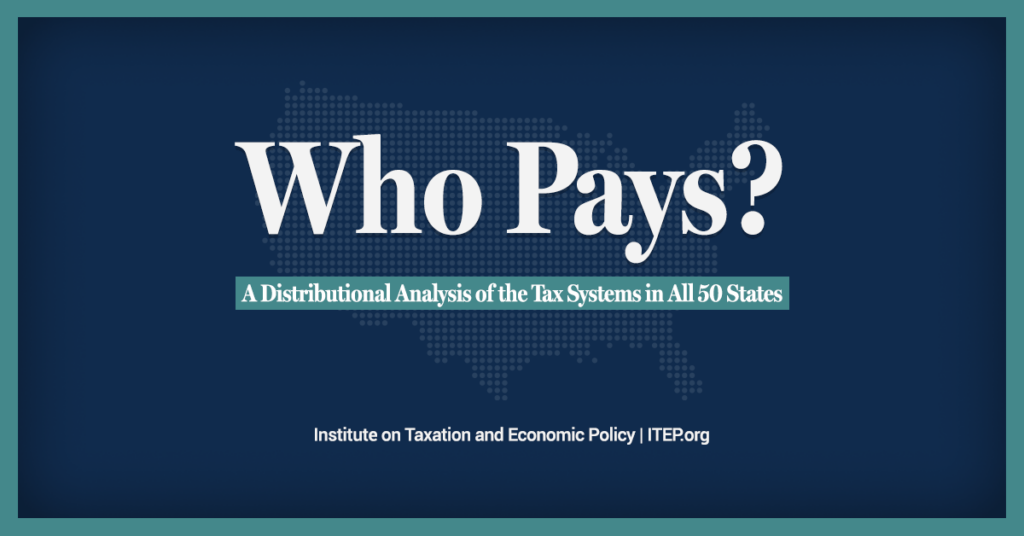ITEP’s Kamolika Das testified in front of the Philadelphia Tax Reform Commission on January 9, 2025. The commission has been charged to examine the city’s overall tax system and propose ways to make it more inclusive, equitable, and growth oriented, and it has been considering changes to the city’s net profits tax and business income and receipts tax (BIRT). These are her prepared remarks.
Good evening and thank you for this opportunity to testify. My name is Kamolika Das and I’m the Local Tax Policy Director at the Institute on Taxation and Economic Policy or ITEP. ITEP is a non-profit, non-partisan tax policy organization. We conduct rigorous analyses of tax and economic proposals and provide data-driven recommendations to shape equitable and sustainable tax systems.
To start off, sophisticated studies by both ITEP and Stanford find that corporate tax cuts do not primarily grow local economies. Instead, when corporations are allowed to pay less in taxes, the ultimate beneficiaries are the owners of corporate stocks. Most benefits flow to foreign investors, a third flows to the richest 1 percent of households and another third flows to the next richest 4 percent.
You also hear a lot of anecdotal data about people and businesses moving to low-tax areas but study after study hasn’t supported that. This makes sense given that taxes generally make up a small portion of business expenses compared to labor, property expenses, manufacturing costs, the costs of managing a supply chain, and so on. Businesses care far more about having an educated workforce and reliable infrastructure.
I also want to question the assumption that Philadelphia’s businesses are struggling to afford the Business Income & Receipts Tax (BIRT) and net profits tax. We know from Pew’s research that only around a quarter of businesses in the city had enough taxable sales to incur a BIRT liability, and that businesses owed a median of 3.5% of their net income in BIRT taxes, or $1300.
And while the Commission is charged with examining the city’s overall tax system, it would be a mistake to ignore the broader context. Following TCJA, the 2017 federal tax law, virtually every business including large corporations and smaller pass-through businesses saw substantial tax reductions. For example, an ITEP study found that Comcast saved $6.6 billion from the tax cuts. Happy to send you that report.
The state has piled on. In 2022, policymakers cut the corporate income tax rate in half over eight years. Pennsylvania already lost nearly $130 million in revenue in 2023 and this will cost us nearly $1.5 billion in 2031.
The city can’t afford more tax cuts. We are already facing a situation that could lead to higher expenses and tighter budgets. Over the past few years, Philadelphia received over $1 billion in federal funds that we won’t have access to going forward. Philadelphia also receives a lot of aid from the federal government, but the incoming Trump administration has indicated plans to cut $500 billion in annual spending. We obviously don’t know yet what these cuts will entail but we can imagine there will be less direct federal aid and that states and localities will need to offset cuts to housing aid, food assistance, health care, infrastructure, etc. In other words, Philadelphia needs to raise more revenue just to maintain current services.
We’re having the wrong conversation. Instead of trying to figure out how to continue cutting corporate taxes for businesses that have already benefited wildly from federal and state tax cuts, we should be discussing how to progressively raise revenue and cut taxes for those with the least means. For context, ITEP recently updated our flagship report, Who Pays?, which analyzes the distribution of state and local taxes across the income scale in all 50 states and D.C. and we found that Pennsylvania ranks the 4th most regressive tax system in the nation. We realize that the Philadelphia Tax Reform Commission cannot right the wrongs of all federal and state policy, but at the very least, we can ensure that Philadelphia’s tax code does not add to this regressivity. Instead, Philadelphia should explore options to expand property tax circuit breakers and make the Wage Tax Refund program more accessible – not cut more taxes for businesses.





